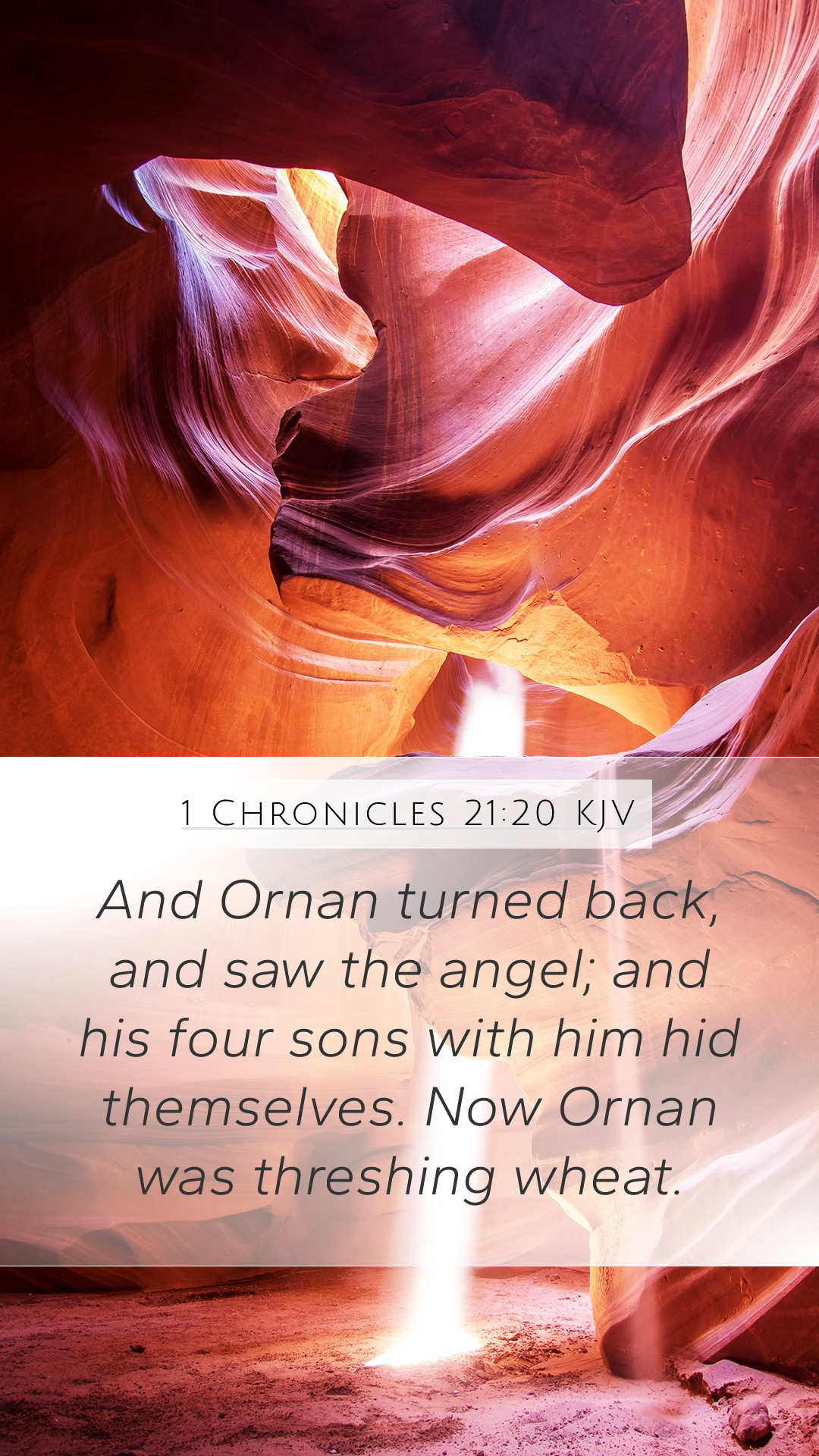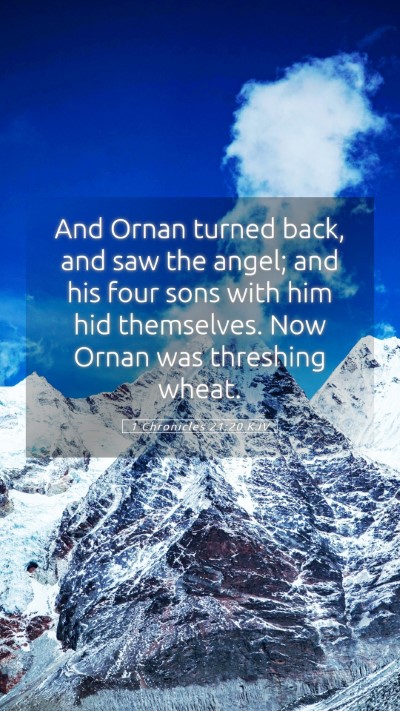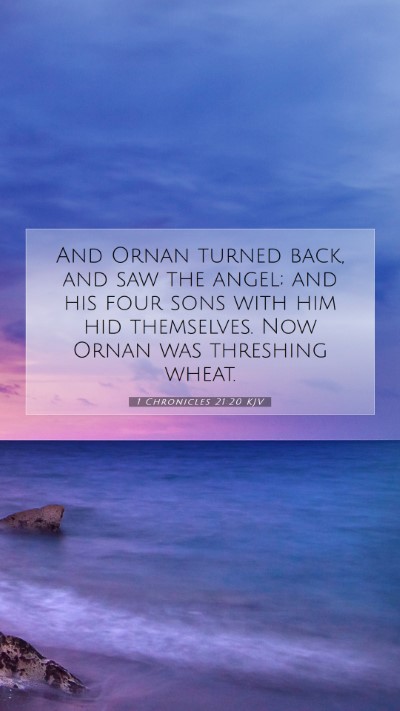Understanding 1 Chronicles 21:20
1 Chronicles 21:20 reads: “And when David turned his back to leave the city, the angel of the Lord stood by the threshing floor of Ornan the Jebusite: and David saw the angel; he was standing between the earth and the heaven.”
This verse highlights a significant moment in David's life as he encounters divine presence amidst his actions. The context of this encounter involves David's decision to number Israel, which was seen as an act of pride and a lack of trust in God's providence.
Meaning and Explanation
-
Divine Intervention: David's encounter with the angel emphasizes God's direct involvement in human affairs, especially in moments of disobedience or misjudgment. As Matthew Henry notes, God often sends messengers to remind believers of their paths and decisions.
-
Symbolism of the Threshing Floor: The threshing floor represents a place of judgment and decision-making. Adam Clarke emphasizes that this location symbolizes the weight of the choices made by David and the consequences that follow. It is a transitional space where spiritual and physical realms meet.
-
Awareness and Repentance: David's vision of the angel can be seen as a moment of awakening, prompting him to confront his actions. Albert Barnes points out that such confrontations can lead to repentance and a deeper understanding of God’s will. David's recognition of the angel signifies his acknowledgment of sin and the need for atonement.
Bible Verse Commentary
The events surrounding this verse are foundational for understanding God's nature and human failure. David's actions are often analyzed within the framework of biblical exegesis as they reveal a common theme of human frailty juxtaposed with divine mercy. This commentary provides insights into the intricate relationship between obedience and divine guidance.
Key Themes from Public Domain Commentaries
-
The Role of Angels: Angels serve as God’s agents, facilitating communication between heaven and earth. David’s vision underscores the significance of acknowledging spiritual influences in our decisions.
-
Heavy Burdens of Leadership: David's experience illustrates the pressures leaders face and the importance of humility. Understanding Scripture can inform current leadership dynamics within church and community settings.
-
Call to Accountability: David’s later actions, spurred by this encounter, show a pathway toward accountability and confession, reinforcing the challenges of fidelity to God's directives.
Cross References
- 2 Samuel 24:16: A parallel account of David’s actions and God’s merciful response.
- 1 Chronicles 21:1: The context of David's census motivated by Satan.
- Revelation 8:2: The imagery of angels stands as a continuity of God’s messengers across scripture.
Application for Bible Study Groups
When engaging with 1 Chronicles 21:20 in Bible study groups, consider exploring the implications of leadership decisions, the nature of divine intervention, and personal accountability. Utilize Bible study tools such as concordances and commentaries to enhance group discussions.
Discussion Questions
- What parallels can we draw between David's experience and our modern lives in terms of leadership and accountability?
- How does recognizing divine presence affect our daily decision-making?
- What lessons can we learn from David about humility and repentance?
Conclusion
1 Chronicles 21:20 serves as a profound reminder of the intersection between humanity and the divine. Understanding this verse enhances our comprehension of biblical narratives and invites reflection on our spiritual journeys. For those seeking bible verse meanings, bible verse interpretations, and bible study insights, this passage offers rich material for exploration and application.


